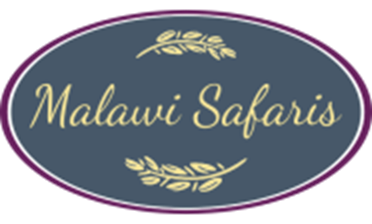Majete Wildlife Reserve Malawi
Majete Wildlife Reserve: A Story of Transformation and Hope
Nestled in the lower Shire valley in the southwestern part of Malawi, lies the Majete Wildlife Reserve, a once neglected and poached-to-the-brink game reserve that has been transformed into one of the greatest conservation successes in Africa. Covering an area of approximately 70,000 hectares, the reserve is a testament to what can be achieved through sustained conservation efforts, local community engagement, and international support.
The Downfall and Rise of Majete Wildlife Reserve
The story of Majete Wildlife Reserve is not uncommon in the annals of African wildlife conservation. In the 1970s and 1980s, the reserve was teeming with wildlife, including the Big Five—lions, leopards, rhinos, elephants, and buffalos. However, years of uncontrolled poaching and lack of effective management led to a catastrophic decline in wildlife populations. By the late 1990s, Majete was a barren wasteland; the once majestic animals were gone, and the reserve was devoid of tourists.
In 2003, African Parks, a non-profit conservation organization, entered into a partnership with the government of Malawi with a vision to restore Majete to its former glory. It was a daring project, one that required a complete overhaul of the reserve’s infrastructure, anti-poaching measures, and community development programs.
The Rebirth of a Wildlife Haven
Efforts began with the rebuilding of the reserve’s management capabilities. Anti-poaching units were trained and equipped, roads were constructed, and a perimeter fence was erected to protect the wildlife from poachers and communities from human-wildlife conflict. With a secure environment in place, African Parks initiated one of the most ambitious reintroduction programs ever seen on the continent.
Over 2,500 animals from 14 different species were translocated to the reserve. The Big Five returned, along with zebras, elands, kudus, and warthogs. The successful reintroduction of these species attracted significant biodiversity, returning Majete to a balanced and thriving ecosystem.
A Safari Experience in Majete Wildlife Reserve
Majete offers a safari experience that is both exclusive and intimate. Unlike some of the more well-known African reserves, Majete is not overrun by tourists. Visitors can enjoy the vastness of the African bush and the thrill of wildlife sightings without the crowds, making it an ideal destination for those seeking solitude and connection with nature.
Wildlife and Game Drives
Game drives in Majete are an exhilarating adventure. Guided by experienced rangers, visitors have the opportunity to encounter a variety of wildlife in their natural habitat. The diverse landscapes within the reserve, ranging from thick miombo woodlands to open savannahs and the dramatic Mkulumadzi River, provide a backdrop for sightings of elephants, buffalos, zebras, warthogs, and numerous antelope species.
The reintroduction of predators such as lions has restored the natural balance within the ecosystem, allowing guests to witness the raw beauty and drama of Africa’s wildlife. Night drives offer a different perspective of the bush, with chances to see nocturnal creatures like genets, bushbabies, and perhaps even a leopard on the prowl.
Walking Safaris and Boat Trips
For those who prefer a more tactile connection with the environment, walking safaris are available. Accompanied by armed rangers, these walks allow visitors to learn about the smaller flora and fauna, track animals on foot, and appreciate the sounds and smells of the bush.
Boat trips on the Shire River are another way to explore Majete. These excursions provide a unique vantage point for viewing hippos, crocodiles, and a plethora of birdlife, including fish eagles and kingfishers, as well as animals coming to the river to drink.
Conservation Education and Research
Besides its tourism and community engagements, Majete is also a center for education and research. The reserve serves as a living classroom for local school children and international researchers. It provides an opportunity to learn about conservation, ecosystem management, and the importance of biodiversity.
Researchers from around the world study the reserve’s flora and fauna, contributing to the broader understanding of conservation issues and ecological processes. This research has been critical in further refining management practices and ensuring that Majete continues to thrive as a healthy and resilient ecosystem.
Accommodation and Amenities
The accommodation within Majete Wildlife Reserve caters to a range of preferences, ensuring comfort and style in the wilderness. From the luxurious Mkulumadzi Lodge to the more rustic Thawale Camp, each facility offers visitors a chance to unwind and immerse themselves in the natural beauty of the reserve.
Mkulumadzi Lodge
This exclusive lodge is the epitome of bush luxury, with spacious chalets overlooking the confluence of the Mkulumadzi and Shire rivers. Guests can enjoy amenities such as a swimming pool, outdoor showers, and star beds for a night under the African sky.
Thawale Camp
Thawale Camp offers a more laid-back atmosphere, with comfortable tented chalets set around a tranquil waterhole. This is the perfect spot for wildlife viewing, as animals often come to drink right in front of the camp.
When to Go
Majete is open year-round, but the best time to visit is during the dry season, from May to October. During this period, vegetation is thinner, making it easier to spot wildlife, and animals tend to congregate around water sources.
The wet season, from November to April, is also an attractive time for bird watchers, as many migratory species are present, and the landscape is lush and green. However, some roads may be impassable due to heavy rains, so it’s essential to check conditions in advance.
Getting There
Majete Wildlife Reserve is located in the lower Shire Valley in the southwestern part of Malawi. The nearest international airport is in Blantyre, which is about a 2.5-hour drive from the reserve. You can hire a car or arrange a transfer through your accommodation.
